Jnanendra Das revisits history and the economic self-sufficiency of the country during the years of freedom struggle intensifying the path towards independence.
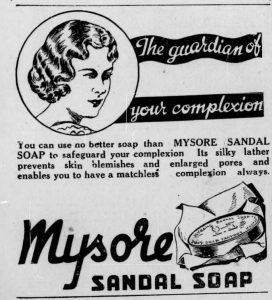 India’s democracy has consistently demonstrated its strength and resilience, rooted in the principles of peace and non-violence that defined its freedom struggle. This enduring lesson of perseverance was crucial during the pre-independence era when the market was flooded with cheap, mass-produced goods from Britain. The turning point came on July 20, 1905, when Viceroy Lord Curzon’s decision to partition Bengal based on religious lines—creating “East Bengal and Assam”—prompted Indian freedom fighters to respond with the Swadeshi Movement. This campaign, advocating for self-sufficiency and a boycott of foreign-made goods, marked a pivotal shift towards embracing Indian products. It laid the groundwork for today’s “Make in India” initiative. Entrepreneurs took this opportunity to launch Indian brands that were affordable yet competitive with British goods, posing a significant challenge to colonial market dominance. Despite numerous obstacles, many of these Swadeshi brands persisted, upholding their values and contributing significantly to India’s economic independence. This Sunday Shillong feature explores the legacy of these pioneering Swadeshi brands that played a crucial role in the
India’s democracy has consistently demonstrated its strength and resilience, rooted in the principles of peace and non-violence that defined its freedom struggle. This enduring lesson of perseverance was crucial during the pre-independence era when the market was flooded with cheap, mass-produced goods from Britain. The turning point came on July 20, 1905, when Viceroy Lord Curzon’s decision to partition Bengal based on religious lines—creating “East Bengal and Assam”—prompted Indian freedom fighters to respond with the Swadeshi Movement. This campaign, advocating for self-sufficiency and a boycott of foreign-made goods, marked a pivotal shift towards embracing Indian products. It laid the groundwork for today’s “Make in India” initiative. Entrepreneurs took this opportunity to launch Indian brands that were affordable yet competitive with British goods, posing a significant challenge to colonial market dominance. Despite numerous obstacles, many of these Swadeshi brands persisted, upholding their values and contributing significantly to India’s economic independence. This Sunday Shillong feature explores the legacy of these pioneering Swadeshi brands that played a crucial role in the 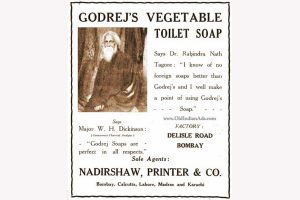 freedom struggle and helped shape India’s economic independence.
freedom struggle and helped shape India’s economic independence.
Mysore Sandal Soap
Soap was a highly prized luxury among affluent Indians pre-independence, appreciated more for its fragrance than its cleansing properties. Recognising this niche, Maharaja Nalwadi Krishna Raja Wodeyar of Mysore took a pioneering step in 1918. He established the Government Sandalwood Oil Factory in Mysore in 1916, aiming to extract high-quality sandalwood oil and position Mysore as the global leader in sandalwood production. His vision was to make Mysore the “Fragrance Ambassador of India.” The oil extraction process began in 1916 with assistance from the 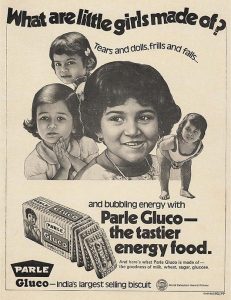 Indian Institute of Science, Bengaluru. In 1918, a foreign guest gifted the Maharaja a rare set of soaps made from Indian sandalwood oil. The fragrance not only hit Maharaja’s senses but also sparked his brain. That’s when the idea of making soap using sandalwood oil from his factory came to mind and that is how Mysore Sandal Soap was born, and it remains a classic favourite to this day. Currently, Karnataka Soaps and Detergents Limited (KSDL), a government-owned company, manufactures the soap. Credit for this iconic product also goes to S.G. Shastri, a distinguished industrial chemist of the time, who travelled to London to learn the soap-making process. (Source: The Legacy, Karnataka Soaps and Detergent Limited)
Indian Institute of Science, Bengaluru. In 1918, a foreign guest gifted the Maharaja a rare set of soaps made from Indian sandalwood oil. The fragrance not only hit Maharaja’s senses but also sparked his brain. That’s when the idea of making soap using sandalwood oil from his factory came to mind and that is how Mysore Sandal Soap was born, and it remains a classic favourite to this day. Currently, Karnataka Soaps and Detergents Limited (KSDL), a government-owned company, manufactures the soap. Credit for this iconic product also goes to S.G. Shastri, a distinguished industrial chemist of the time, who travelled to London to learn the soap-making process. (Source: The Legacy, Karnataka Soaps and Detergent Limited)
Parle
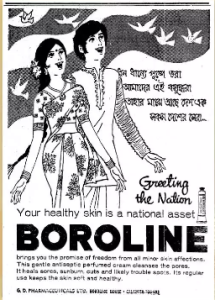 Biscuit—a sweet British treat often enjoyed with tea—was once a luxury for the Indian masses. If a national biscuit were to be crowned, Parle-G would undoubtedly claim the title. In 1929, influenced by the Swadeshi movement, Mohanlal Dayal of the Chauhans, a Mumbai-based silk trading family, acquired and revamped an old factory to produce affordable confectionery. This led to the establishment of the first Indian-owned confectionery factory in the Vile Parle suburbs of Bombay (now Mumbai), with just 12 employees. Thus, the name Parle was adopted. Initially, the factory focused on producing orange candies. It wasn’t until 1938 that they ventured into biscuit production, baking their first biscuit, Parle-Gluco, in 1939. This biscuit quickly became popular and was later renamed Parle-G in the 1980s. The same year, Parle introduced Monaco, India’s first salted biscuit. Today, Parle-G remains an affordable favourite and a staple companion to tea, embodying a beloved taste of nostalgia. (Source: About Us, Parle Products)
Biscuit—a sweet British treat often enjoyed with tea—was once a luxury for the Indian masses. If a national biscuit were to be crowned, Parle-G would undoubtedly claim the title. In 1929, influenced by the Swadeshi movement, Mohanlal Dayal of the Chauhans, a Mumbai-based silk trading family, acquired and revamped an old factory to produce affordable confectionery. This led to the establishment of the first Indian-owned confectionery factory in the Vile Parle suburbs of Bombay (now Mumbai), with just 12 employees. Thus, the name Parle was adopted. Initially, the factory focused on producing orange candies. It wasn’t until 1938 that they ventured into biscuit production, baking their first biscuit, Parle-Gluco, in 1939. This biscuit quickly became popular and was later renamed Parle-G in the 1980s. The same year, Parle introduced Monaco, India’s first salted biscuit. Today, Parle-G remains an affordable favourite and a staple companion to tea, embodying a beloved taste of nostalgia. (Source: About Us, Parle Products)
Boroline
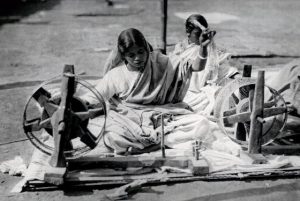 Cuts, burns, chapped lips—there’s almost nothing that the green-tube ointment, Boroline, can’t remedy. Born out of the Swadeshi Movement around 1929, Boroline not only competed with foreign brands but also became a staple in Indian households and continues to be a trusted product to this day. Gour Mohun Dutta, originally a foreign products importer, decided to join the Swadeshi Movement. With a vision of a free and self-reliant India in his heart, he began making things in his own home and this gave birth to Boroline, the famed green tube. It was the happy outcome of the heady nationalistic wave that had engulfed all Indians during the pre-independence era. Gour Mohun Dutta, a practical patriot, was convinced that the best way to help India was to contribute to her economic self-sufficiency. His products were of quality equivalent to their foreign counterparts. Many dissuaded him against this. But Gour Mohun Dutta followed his heart. Apart from being a medical product, it was a smack in the face of the British and a strong protest against foreign goods and British economic exploitation. The choice of an
Cuts, burns, chapped lips—there’s almost nothing that the green-tube ointment, Boroline, can’t remedy. Born out of the Swadeshi Movement around 1929, Boroline not only competed with foreign brands but also became a staple in Indian households and continues to be a trusted product to this day. Gour Mohun Dutta, originally a foreign products importer, decided to join the Swadeshi Movement. With a vision of a free and self-reliant India in his heart, he began making things in his own home and this gave birth to Boroline, the famed green tube. It was the happy outcome of the heady nationalistic wave that had engulfed all Indians during the pre-independence era. Gour Mohun Dutta, a practical patriot, was convinced that the best way to help India was to contribute to her economic self-sufficiency. His products were of quality equivalent to their foreign counterparts. Many dissuaded him against this. But Gour Mohun Dutta followed his heart. Apart from being a medical product, it was a smack in the face of the British and a strong protest against foreign goods and British economic exploitation. The choice of an 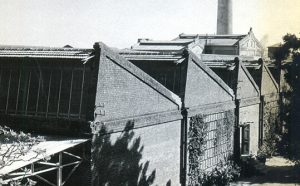 “elephant” for Boroline’s logo was intentional, as it symbolises strength and stability. In rural India, the ointment earned the nickname “hathiwala cream” for its dependable results. (Source: About Us, Boroline World)
“elephant” for Boroline’s logo was intentional, as it symbolises strength and stability. In rural India, the ointment earned the nickname “hathiwala cream” for its dependable results. (Source: About Us, Boroline World)
Dabur
For centuries, people in India have put their faith in Ayurvedic and herbal treatments above others. Dr. S. K. Burman, better known as “Dakatar Burman” (Burman Doctor), was a revered figure in Calcutta (now Kolkata). His name spread far and wide, with people considering his treatment no less than a miracle. He continued selling his handmade remedies until 1884. In that year, he decided to formalise his mission and launched a healthcare product line in Calcutta, naming it Dabur, inspired by his epithet. What started as a modest venture in Calcutta’s by-lanes grew into a significant enterprise. By 1896, Dr. Burman had established a manufacturing plant to produce his formulations on a larger scale. His goal was to offer affordable and effective remedies for common ailments in remote villages. He created natural treatments for diseases such as cholera, malaria, and plague. Among his notable innovations was the development of small digestion-aiding tablets, which evolved into the iconic “Hajmola.” Another standout product is Dabur Chyawanprash, a health supplement enjoyed by people of all ages for its immune-boosting and strength-enhancing benefits. (Source: Our Story, Dabur)
Arvind
During the Swadeshi Movement, foreign goods, especially garments, were targeted by widespread boycotts. On streets across India, foreign-made clothes were burned on bonfires as a symbol of resistance. The British colonisers exploited Indian cotton by buying it at low prices and exporting it to manufacture garments in their own country. The influx of machine-made clothes made Khadi, the traditional fabric, seem like a costly alternative. In this challenging environment, Lalbhai Dalpatbhai made a significant move. In 1897, he established the Saraspur Manufacturing Company in Ahmedabad, marking the beginning of local textile manufacturing. Responding to the Swadeshi call, his Gandhian nationalist family launched Arvind Mills in 1931. Within a few years, Arvind Mills emerged as a leading textile producer and went global by 1935. The company aimed to compete with the world’s top textile mills. By 1935-38, Arvind’s butta voiles (sheer light cotton fabric) were being exported to Switzerland and the UK, showcasing the true spirit of Swadeshi. Did you know that India’s first denim apparel brand, Flying Machine, was also started by Arvind in 1980? (Source: The Arvind Story)
These are not the only brands that fuelled the freedom struggle; among others, companies like Tata Steel, Godrej and Amul were the building blocks of independent India. This feature is an attempt to highlight some of the lesser-known brands and the inspiring story of how they survived the turbulence of time and continued the business with excellence.



